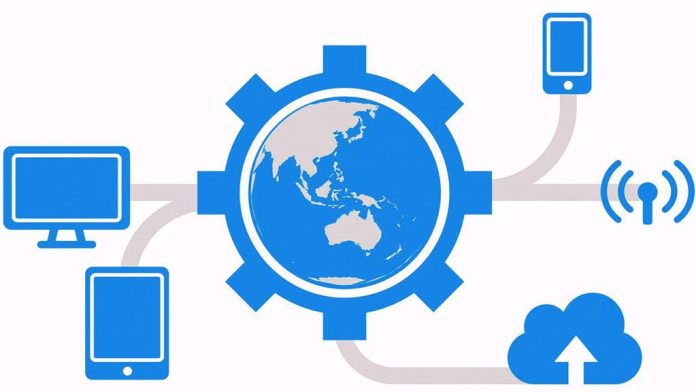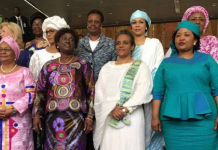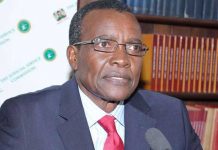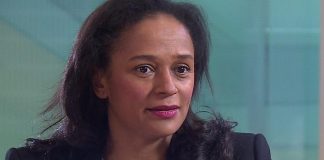COVID-19 is striking the world on an unprecedented scale. Cities are locked down, schools and businesses are closed, airlines are cancelled, tens of thousands of people were killed globally, and many people and their family members, especially the underprivileged class, are suffering. It remains uncertain how long the global pandemic will last and not to mention an end. The first batch of coronavirus cases was reported in Wuhan, China in late 2019. China’s local health authority (Wuhan Municipal Health Commission) first claimed the virus had “no apparent pattern of human-to-human transmission” on December 31, 2019. Then, the spokesperson of China’s Ministry of Foreign Affair said China had notified the World Health Organization (WHO) and the United States multiple times in early January. In the twilight of 2019, a communicable disease by the name, coronavirus broke out in a city in the Asian country of China. The disease according to numerous studies including The World Health Organization that COVID-19 is the fastest spreading and most contagious deadly disease that has ever plagued human race. Africa has a fair dose of knocks from COVID-19 with Nigeria as one of the leading traumatized countries. In Nigeria, the Nigeria Center for Disease Control gives a daily statistics of those suspected, tested, confirmed and fatality cases of COVID-19.
The impacts exerted on the business environment and the socio-economic sphere by Coronavirus pandemic have been felt globally and not only in Nigeria. In the midst of this life-threatening situation, however, the digital economy drive and consciousness of countries such as Nigeria is being put to test. Coronavirus pandemic, now globally infamously known as COVID-19, has brought the global economy on its knees by disrupting economic activities. It has kept governments busy fighting for the lives of their people and that of their economies. In Nigeria, this has warranted the government at the federal and state levels to enforce restrictions on movement, as well as total lockdown in some parts of the country, particularly Lagos, Abuja and Ogun State. Consequently, big business organizations, as well as small and medium enterprises have inevitably put their offices under lock and key, and resorted to suspension of operations, with some choosing to work remotely.
In the struggle to prevent the economy from shutting down completely, the federal government of Nigeria has encouraged, and where necessary, recommended business continuity plan, especially in sectors delivering critical services such as the financial, and telecommunications sectors, among others. For instance, the Central Bank of Nigeria (CBN) and the Nigerian Communications Commission (NCC) have charged banks and telecoms companies under their supervision respectively to make their services available to their customers and subscribers throughout the lockdown period. Also, President Muhammadu Buhari recently took a further step to ensure the economy adapts to this new reality, as he directed the ministers of Industry, Trade and Investment, Communication and Digital Economy, Science and Technology, Transportation, Aviation, Interior, Health, Works and Housing, Labour and Employment and Education to jointly develop a comprehensive policy for a “Nigerian economy functioning with COVID-19″.
While the lockdown and restrictions in movement continue to hold sway in the country as the most viable measures to control further spread of COVID-19, most activities across the various sectors will be backed by digital mode of operations, and also, the policy for a Nigerian economy functioning with COVID-19 being developed by the ministers can only be executed by leveraging on digital options, which align with the digital economy drive of the country. By way of definition, digital economy is defined as an economy that focuses on digital technologies. It is based on digital and computing technologies. It essentially covers all business, economic, governance, social and cultural activities that are supported by the web and other digital communication technologies. Since the term was coined in a book titled “The Digital Economy: Promise and Peril in the Age of Networked Intelligence” authored by Don Tapscott in 1995, governments, and global bodies such as the International Monetary Fund (IMF), World Bank, International Telecommunications Union (ITU), GSM Association (GSMA), among others, have identified with it as the future of the global economy. Digital economy, according to experts, promotes use of the Internet with the attendant possibility of most daily office works performed on the Internet. It leads to rise in e-commerce. Particularly, the businesses that adapted and adopted the internet and embraced online business in the last decade have flourished and the digital economy has pushed the e-commerce sector into overdrive.
Deepened adoption of digital economy is also meant to promote e-governance and transparency in the corridor of power, even as it connects the people more conveniently with the government, leading to efficiency in management of public resources. Late 2019, the World Bank sounded a warning that despite recorded gains of technology in Nigeria, the country has not been pursuing holistic digital reforms that can engender a digital economy. The global apex bank said in its “Nigeria Digital Economy Diagnostic Report” released on November 29, that the Digital Economy offers opportunities, but also brings risks of being left behind for countries such as Nigeria. The World Bank noted that in 2016, the global digital economy was worth about USD 11.5 trillion, equivalent to 15.5 per cent of the world’s overall GDP, while it added that this is expected to reach 25 per cent in less than a decade, quickly outpacing the growth of the overall economy. The country has also witnessed conduction of virtual meetings in governance, which perfectly resonates with e-governance under a digital economy. The Lagos state government tagged this as an historical experience on Monday, March 30, when it conducted its first ever virtual executive meeting, chaired by Governor Babajide Sanwo-Olu.
More times than can be counted, application and software such Skype, Zoom, WhatsApp video, among others, have been used in Nigeria to conduct trainings and virtual classes since the global health challenge started raging. For the same reasons of staying safe and at the same time sustaining learning, e-learning has received a fillip as institutions, ranging from primary, to secondary to tertiary settings, are putting resources in place to promote e-learning in the country even as students are encouraged to shun lecture theatres. The same increased adoption of digital tools goes with micro, small and medium enterprises in Nigeria since the struggle against COVID-19 became the topmost priorities of Nigerian authorities. As indicated by the World Bank in its Nigeria’s digital economy diagnosis report, the digital economy is based on the trio of digital citizen, digital government and digital private sector; driven by digital finance, digital entrepreneur, digital infrastructure, digital platforms and digital skills which all manifest in the larger socioeconomic setting in form of digital culture, digital health, digital transport, smart energy, ex learning, e -governance, e-commerce, and Industry.
The lockdown and restriction triggered by COVID-19 have brought people to realize digital channels as alternative ways of performing various tasks and operations. After surviving the pandemic, these realizations may stay and give boost to digital economy drive in Nigeria. “As the biggest economy in Africa with one of the largest populations of young people in the world, Nigeria is well-positioned to develop a strong digital economy, which would have a transformational impact on the country,” said Isabel Neto, World Bank Senior Digital Development Specialist and co- author of the report. “Through innovations and investments, the Nigerian economy can harness digital data and new technologies, generate new content, link individuals with markets and government services, and roll out new, sustainable business models.” The Nigeria Digital Economy Diagnostic says that with improvements in digital connectivity, digital skills, digital financial services and other core areas of digital development, Nigeria can fully unleash new economic opportunities create jobs and transform people’s lives. The big question now is are the states in the south-south, south east, and south west parts of Nigeria ready to develop their digital economy? In a survey carried out last week on the state of readiness of states in Nigeria to embrace, develop and boost their digital economies, it was discovered that it was only Lagos State that was 90 percent ready for this take off. In fact, during the lockdown, the digital economy in Lagos made a 70 percent increase compared to other states in the Southern part of Nigeria.
It is our position that the digital economy has come to stay globally and if the economy of the southern states is to remain at top gear and speed, it must as a matter of necessity embrace the digital option to boost its economy. After surviving the pandemic, these realizations may stay and give boost to digital economy drive in Nigeria; therefore, the southern part of Nigeria should not be left out in this new turn of event. The escape opportunities provided by adoption of digital solutions during COVID-19 may have opened the door for a drastic change and improvement in digital economy drive in Nigeria, as the current refuge and solace found in the digital world may outlive the global pandemic, we therefore, advise not just the southern part of Nigeria, but the whole country to buy into this new world economic move.


















